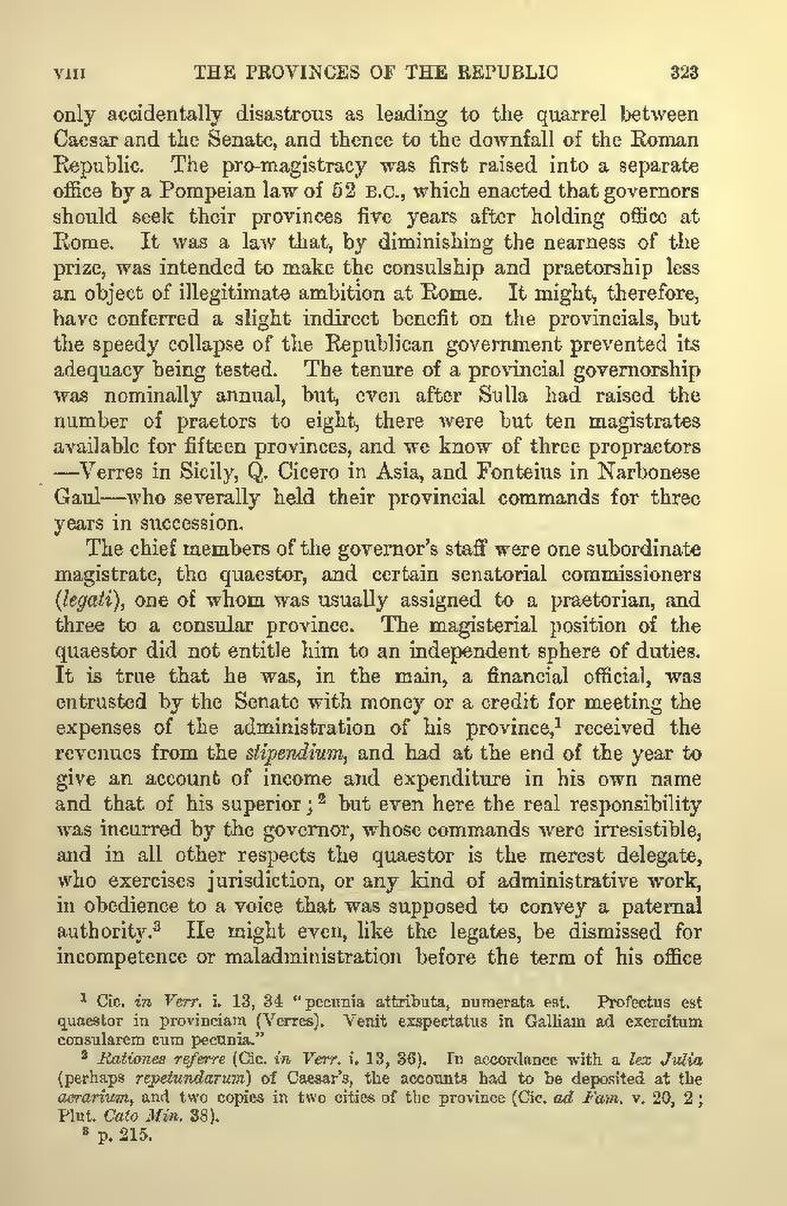only accidentally disastrous as leading to the quarrel between Caesar and the Senate, and thence to the downfall of the Roman Republic. The pro-magistracy was first raised into a separate office by a Pompeian law of 52 B.C., which enacted that governors should seek their provinces five years after holding office at Rome. It was a law that, by diminishing the nearness of the prize, was intended to make the consulship and praetorship less an object of illegitimate ambition at Rome. It might, therefore, have conferred a slight indirect benefit on the provincials, but the speedy collapse of the Republican government prevented its adequacy being tested. The tenure of a provincial governorship was nominally annual, but, even after Sulla had raised the number of praetors to eight, there were but ten magistrates available for fifteen provinces, and we know of three propraetors—Verres in Sicily, Q. Cicero in Asia, and Fonteius in Narbonese Gaul—who severally held their provincial commands for three years in succession.
The chief members of the governor's staff were one subordinate magistrate, the quaestor, and certain senatorial commissioners (legati), one of whom was usually assigned to a praetorian, and three to a consular province. The magisterial position of the quaestor did not entitle him to an independent sphere of duties. It is true that he was, in the main, a financial official, was entrusted by the Senate with money or a credit for meeting the expenses of the administration of his province,[1] received the revenues from the stipendium, and had at the end of the year to give an account of income and expenditure in his own name and that of his superior;[2] but even here the real responsibility was incurred by the governor, whose commands were irresistible, and in all other respects the quaestor is the merest delegate, who exercises jurisdiction, or any kind of administrative work, in obedience to a voice that was supposed to convey a paternal authority.[3] He might even, like the legates, be dismissed for incompetence or maladministration before the term of his office
- ↑ Cic. in Verr. i. 13, 34 "pecunia attributa, numerata est. Profectus est quaestor in provinciam (Verres). Venit exspectatus in Galliam ad exercitum consularem cum pecunia."
- ↑ Rationes referre (Cic. in Verr. i. 13, 36). In accordance with a lex Julia (perhaps repetundarum) of Caesar's, the accounts had to be deposited at the aerarium, and two copies in two cities of the province (Cic. ad Fam. v. 20, 2; Plut. Cato Min. 38).
- ↑ p. 215.
